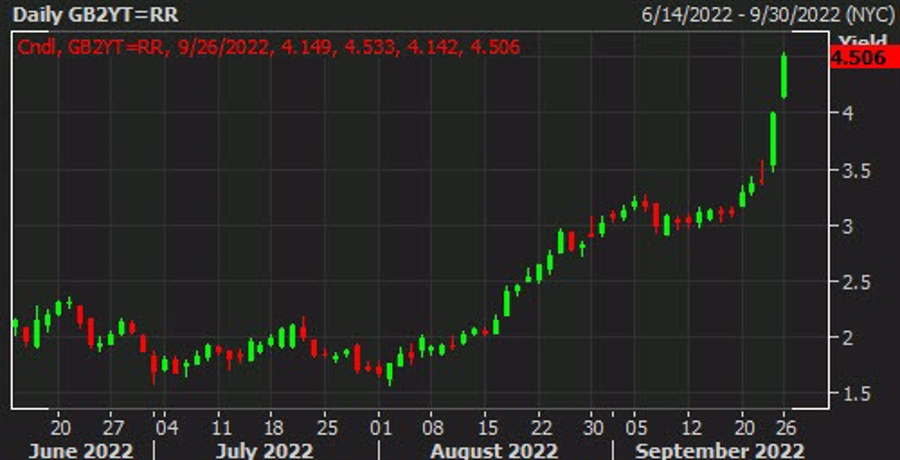Borrowing record amounts at a time when the BOE is about to wind down its own stock of gilts is evidently taking a toll. A severely weakened currency, more BOE rate hikes and a current account deficit is all putting immense pressure on the UK outlook right now and it is showing up in the bond market.
This may very well be the sign of a collapse in a market that is not able to accommodate the extra supply amid quantitative tightening. The risk of inflation and a slump in demand for UK assets pose a serious threat to the economy. Investors are becoming increasingly wary of holding UK bonds, fearing a potential default as the country struggles to manage its debt levels.
The implications of this situation are far-reaching. A sharp sell-off in UK bonds could lead to a spike in interest rates, making it more expensive for businesses and consumers to borrow money. This, in turn, could dampen economic growth and increase the likelihood of a recession.
The weakening of the UK economy could also have ripple effects across the globe. As one of the world’s largest financial centers, any instability in the UK market could reverberate throughout the international financial system. Investors and policymakers worldwide will be closely monitoring the situation, as the consequences of a UK bond market collapse could be felt far beyond its borders.
Impact on Individuals
For individuals, a collapse in the UK bond market could mean higher borrowing costs, lower returns on investments, and potential job losses. Higher interest rates could make it more expensive to take out mortgages, car loans, and other forms of credit. Retirement savings and investment portfolios may also suffer as the value of UK assets declines. It is essential for individuals to stay informed about the situation and adjust their financial plans accordingly.
Global Implications
The potential collapse of the UK bond market has the potential to disrupt global financial markets and destabilize the international economy. As a major player in the global economy, any significant downturn in the UK could have widespread implications for trade, investment, and financial stability. Other countries may need to take steps to mitigate the impact of a UK bond market collapse and prevent contagion to their own markets.
Conclusion
In conclusion, the current pressures facing the UK bond market are a cause for concern both domestically and internationally. The implications of a collapse in the market could be severe, affecting individuals, businesses, and economies around the world. It is crucial for policymakers to address these challenges proactively and for individuals to stay informed and prepared for any potential economic turmoil ahead.





